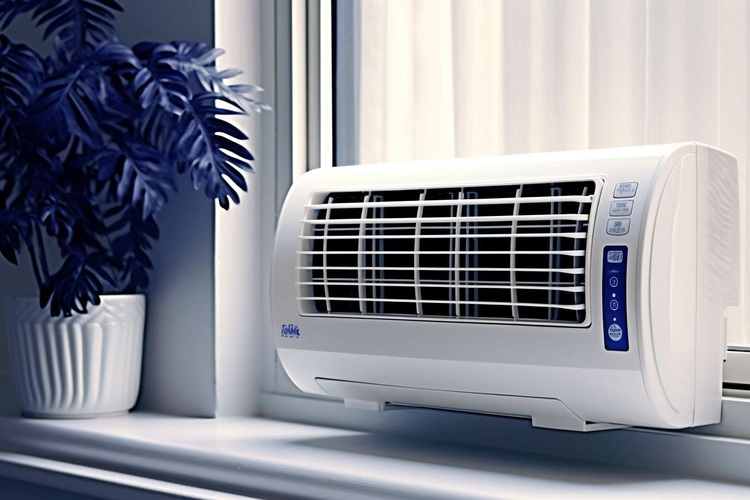Explore the Best Air Conditioners for Optimal Comfort
In the sweltering heat of summer, selecting the right air conditioner can transform your living space into a refreshing oasis. This guide explores the best air conditioners on the market, highlighting models that excel in energy efficiency, cooling performance, and innovative features like smart controls and quiet operation. From compact window units ideal for apartments to robust central systems for whole-home comfort, we'll help you navigate key factors such as BTU ratings, installation ease, and long-term reliability to find a solution tailored to your needs and budget.

What are the top-rated window air conditioners for 2025?
Window air conditioners remain a popular choice for cooling single rooms or small apartments. As we look ahead to 2025, several models are expected to stand out for their efficiency and performance. While specific models for 2025 are not yet available, current trends suggest that future top-rated window air conditioners will likely feature improved energy efficiency, smart home integration, and eco-friendly refrigerants.
Key features to look for in upcoming window air conditioners include:
-
Energy Star certification for optimal efficiency
-
Wi-Fi connectivity for remote control via smartphone apps
-
Variable-speed compressors for precise temperature control
-
Advanced air filtration systems to improve indoor air quality
How do smart controls enhance air conditioner operation?
Smart controls are revolutionizing the way we interact with our air conditioning systems. These advanced features offer convenience, energy savings, and improved comfort. Many modern air conditioners now come equipped with Wi-Fi connectivity, allowing users to control their units remotely through smartphone apps.
Some benefits of smart controls in air conditioners include:
-
Scheduling capabilities to automate temperature changes
-
Integration with voice assistants like Amazon Alexa or Google Home
-
Real-time energy consumption monitoring
-
Geofencing technology that adjusts settings based on your location
By leveraging these smart features, users can optimize their air conditioner’s performance while potentially reducing energy costs.
What makes an air conditioner quiet in operation?
Noise levels are a significant concern for many air conditioner users, especially in bedrooms or quiet work environments. Manufacturers have been focusing on developing quieter units to address this issue. Several factors contribute to an air conditioner’s noise level:
-
Compressor design and insulation
-
Fan blade shape and material
-
Vibration dampening technology
-
Overall unit construction and placement of components
When shopping for a quiet air conditioner, look for models that advertise low decibel ratings, typically below 55 dB. Some units even offer “silent” or “sleep” modes that further reduce noise during nighttime operation.
How do portable air conditioners compare to central systems?
Portable air conditioners and central systems serve different needs and come with their own sets of advantages and disadvantages. Understanding these differences can help you choose the best option for your specific situation.
Portable air conditioners:
-
Pros: Easy to install, no permanent modifications required, can be moved between rooms
-
Cons: Less efficient than central systems, limited cooling capacity, may be noisier
Central air conditioning systems:
-
Pros: Whole-house cooling, more energy-efficient for large spaces, often quieter operation
-
Cons: Higher initial cost, requires professional installation, less flexibility for zone cooling
| System Type | Cooling Capacity | Energy Efficiency | Installation | Cost Range |
|---|---|---|---|---|
| Portable AC | 8,000-14,000 BTU | Lower | DIY-friendly | $300-$700 |
| Central AC | 24,000-60,000 BTU | Higher | Professional required | $3,000-$7,000 |
Prices, rates, or cost estimates mentioned in this article are based on the latest available information but may change over time. Independent research is advised before making financial decisions.
What are the latest innovations in air conditioning technology?
The air conditioning industry continues to evolve, with new technologies emerging to improve efficiency, comfort, and environmental impact. Some of the latest innovations include:
-
Inverter technology: Allows for variable compressor speeds, resulting in more precise temperature control and energy savings
-
Dual fuel heat pumps: Combine electric heat pumps with gas furnaces for optimal heating and cooling in various climates
-
Zoned systems: Enable different temperature settings for various areas of the home
-
Solar-powered air conditioners: Utilize renewable energy to reduce electricity consumption and costs
As research and development in the HVAC industry progresses, consumers can expect to see more advanced and eco-friendly cooling solutions in the coming years.
Choosing the right air conditioner involves considering factors such as room size, energy efficiency, noise levels, and specific cooling needs. By understanding the various options available and staying informed about the latest technologies, you can make a decision that ensures optimal comfort in your living or working space. Remember to consult with HVAC professionals for personalized advice and to ensure proper installation and maintenance of your chosen air conditioning system.




